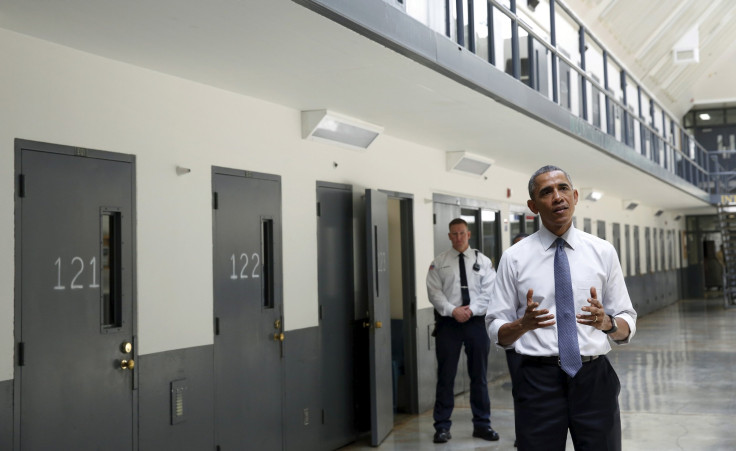As Obama Administration Extends Pell Grants To Prisoners, Advocates Warn That Ex-Offenders Face For-Profit College Pitfalls

The Obama administration’s new pilot program to expand federal Pell grants to prisoners cracks open a door that Congress shut two decades ago, when it eliminated prisoners' access to the education grants in 1994. But some advocates say that men and women leaving lives behind bars are especially vulnerable to the for-profit college industry, a sector that itself has become the target of multiple federal and state probes in recent years.
While the new program, which makes the grants available through a collection of experimental sites, sheds light on the educational opportunities -- or lack thereof -- available to the growing prison population, even supporters of the policy worry that ex-offenders need even more help making choices on matters of educational and professional development once they're out of prison.
“There’s nothing wrong at all with giving felons the chance to get a college education," says attorney David Halperin, who writes frequently about the for-profit college industry. "The problem is recruiting felons to programs that are poor quality, and particularly programs that felons won’t be able to benefit from because they have a criminal conviction.”
An ongoing lawsuit filed by Illinois Attorney General Lisa Madigan, for example, accuses for-profit Westwood College of misleading students in "nearly every important aspect" of the school's criminal justice degree program, "from the financing and cost of the program to the likelihood of a positive employment outcome after the student departs the school." The suit alleges that only 3.8 percent of the program's graduates found jobs as sworn law enforcement officers, and that the school failed to tell prospective students that job opportunities in the criminal justice field "may be limited for any graduate who has a criminal record, and especially for those who have a felony conviction on his or her record." The school has denied the allegations in court papers.
For-profit colleges "often have high prices, low quality, and often leave students worse off than when they started," says Halperin. "That's the last thing that a former offender needs."
In New York state, organizations that help with re-entry for former prisoners have recently called attention to recruitment practices by for-profit colleges within prisons. Multiple re-entry groups "report seeing and hearing from their populations that representatives make regular visits to prisons for re-entering populations to apply to their schools," according to a brief published this month by the Financial Clinic.
Some of the recruitment practices include assisting prisoners fill out the FAFSA, or Free Application for Federal Student Aid, says Haidee Cabusora, director of policy, services and research at the Financial Clinic.
Cabusora says her organization encourages ex-offenders to get an education as a way of building their lives anew. At the same time, she adds, it's critical that ex-offenders understand the value of the degree or certificate program they enroll in, and what kinds of financial responsibilities they're taking on. One big consequence of an ill-informed educational or job-training choice is dealing with the resulting unemployment—on top of student debt.
“Without fully explaining all of that information, folks could find themslevs leaving prison with a lot more debt than they originally anticipated, and diminished options for employment opportunities,” Cabusora says.
Current prisoners and ex-offenders need more resources, she adds, "highlighting both the advantages and the disadvantages that are possible in such a big financial decision."
© Copyright IBTimes 2024. All rights reserved.




















